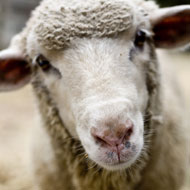
Almost a quarter of ewes test positive for Maedi Visna
Vets are advising sheep farmers to investigate any cases of ill-thrift at tupping, as test results for SAC Consulting reveal that almost a quarter of ewes tested for Maedi Visna (MV) are carrying the disease.
The tests were performed on flocks throughout England, but vets are warning that the disease is also present in Wales and Scotland.
The majority of flocks tested were cross-breeds and sometimes lame. The mortality rates of ewes were increased and lambing percentages and growth rates reduced.
“Ewes should be in good condition at tupping this year given the good weather we have seen this autumn,” says Brian Hosie, head of SAC Consulting Veterinary Services.
“This makes it all the more important farmers and crofters quickly work out why some ewes may not be performing”.
Introduced to the UK through imported sheep, MV is a chronic viral disease which has since spread - especially in commercial flocks. The fatal condition is highly contagious and difficult to diagnose.
SAC say that farmers worried about their flock should condition score their ewes and manage them accordingly; this will allow them to identify ewes which are not improving.
Other diseases that can cause ill-thrift in sheep flock include liver fluke, worms, trace element deficiency, Johne's Disease and OPA/Jaagsiekte.
Veterinary surgeons can find out what is causing ill-thrift through collecting samples of faeces or blood for analysis, or by arranging for some animals to be examined post-mortem.



 The latest
The latest